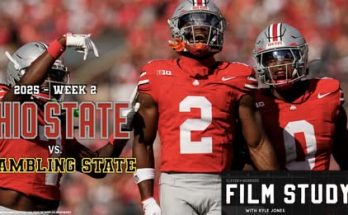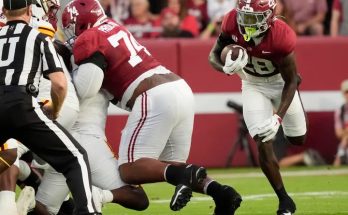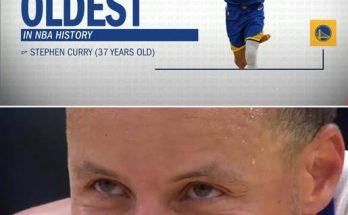Stephen A. Smith acknowledges his error after criticizing LeBron over the Kobe Bryant memorial.
In the world of sports commentary, few voices carry as much weight as Stephen A. Smith. The ESPN personality is known for his bold takes, passionate analysis, and sometimes controversial statements. However, even the most experienced analysts can make mistakes, and Smith recently found himself in such a situation. After publicly criticizing LeBron James for allegedly not attending the memorial service for the late Kobe Bryant, Smith later admitted his error, acknowledging that James was indeed present but chose to grieve privately. This incident highlights the responsibility of media figures to ensure accuracy and the challenges of covering high-profile athletes in the age of instant information.
The Initial Criticism
On a recent episode of ESPN’s “First Take,” Stephen A. Smith expressed disappointment over LeBron James’ supposed absence from the memorial service held at the Staples Center in February 2020. The service was attended by thousands of fans, NBA legends, and celebrities, all paying tribute to Bryant and his daughter Gianna, who tragically passed away in a helicopter crash. Many high-profile figures, including Michael Jordan, Shaquille O’Neal, and Vanessa Bryant, gave heartfelt speeches honoring Kobe’s legacy.
Smith, believing that LeBron James had chosen not to attend, voiced his concerns about what he perceived as a lack of respect. Given the close relationship between Bryant and James—especially after LeBron had passed Kobe on the NBA’s all-time scoring list just a day before the tragic crash—Smith argued that it was expected for James to be visibly present at the ceremony.
The Backlash and New Information
Shortly after Smith’s comments aired, reports began emerging that contradicted his assertion. Sources close to James confirmed that he had indeed attended the memorial but chose to do so privately, avoiding cameras and public visibility. Unlike many other attendees who were seen on broadcast footage, James did not wish to make his presence a spectacle, opting instead to grieve out of the public eye.
As more evidence surfaced supporting James’ attendance, fans and analysts started questioning Smith’s credibility on the matter. Critics pointed out that his rush to judgment contributed to unnecessary scrutiny on LeBron, especially during such an emotionally charged time.
Smith’s Public Apology
Faced with mounting pressure and evidence contradicting his claim, Stephen A. Smith took to “First Take” once again to correct his mistake.
“I have to own up to it. I said something that turned out to be incorrect, and that’s on me. I didn’t mean to say that LeBron wasn’t in the building—I was told he was in the building, but I didn’t see him. That was my mistake,” Smith said.
His apology was a rare moment of humility from a commentator known for his unwavering confidence. He reiterated that his initial comments were based on the information he had at the time, but acknowledged that he should have been more diligent in verifying the facts before making such a public assertion.
The Role of Media in Shaping Narratives
This incident raises important questions about the responsibilities of sports media figures in today’s fast-paced information environment. The demand for immediate takes and reactionary commentary can sometimes lead to the dissemination of incomplete or incorrect information. In Smith’s case, his strong platform amplified a misleading narrative about LeBron James, which fueled unnecessary criticism and debate.
While it is natural for sports analysts to express opinions and engage in debates, there is an inherent duty to ensure that those opinions are grounded in factual information. The influence that figures like Stephen A. Smith wield means that even minor misstatements can have major consequences, impacting the reputations and public perceptions of athletes.
LeBron James’ Response
Unlike past instances where James has directly responded to media criticism, he largely remained silent on Smith’s comments. This aligns with his approach to personal matters, as he has often chosen to ignore or downplay controversies rather than engage in public back-and-forth exchanges.
LeBron’s decision to grieve privately was a personal one, and it speaks to the way different individuals process loss. For some, public ceremonies are an important part of mourning, while others prefer solitude. The expectation that James needed to be visibly present ignores the reality that grief is deeply personal and does not always fit into conventional public expectations.
Broader Implications for Sports Media
The controversy surrounding Smith’s comments on LeBron touches on a broader issue within sports media: the challenge of balancing strong opinions with responsible journalism. The pressure to generate content and provide engaging discussions can sometimes lead to hasty conclusions. This incident serves as a reminder that accuracy should always take precedence over sensationalism.
Moreover, it underscores the importance of fact-checking and using credible sources before making public statements. While Smith did ultimately correct himself, the initial damage had already been done, as millions of viewers had already consumed his original remarks.
Moving Forward
For Stephen A. Smith, this situation serves as a learning experience. While he remains one of the most respected voices in sports media, even seasoned professionals must recognize when they have erred. Owning up to mistakes and making corrections is crucial in maintaining credibility with audiences.
For LeBron James, this was yet another instance of having to deal with scrutiny despite his intentions being misinterpreted. As one of the most high-profile athletes in history, he is no stranger to media speculation and criticism. However, incidents like these reaffirm the need for commentators and journalists to be mindful of how their words can impact public narratives.
The controversy surrounding Stephen A. Smith’s erroneous criticism of LeBron James serves as a case study in the intersection of sports commentary, media responsibility, and public perception. While Smith ultimately acknowledged his mistake and issued an apology, the incident highlights the need for more thoughtful and accurate reporting in sports media.
As the landscape of journalism continues to evolve with the rapid spread of information, the role of commentators and analysts remains crucial in shaping public discourse. With great influence comes great responsibility, and this episode serves as a reminder that even the most respected voices in sports media must strive for accuracy before making bold claims.
In the end, the incident may be a blip in both Smith’s and LeBron’s careers, but it provides valuable lessons on the importance of thoughtful commentary and the nuances of covering high-profile figures during sensitive moments.



